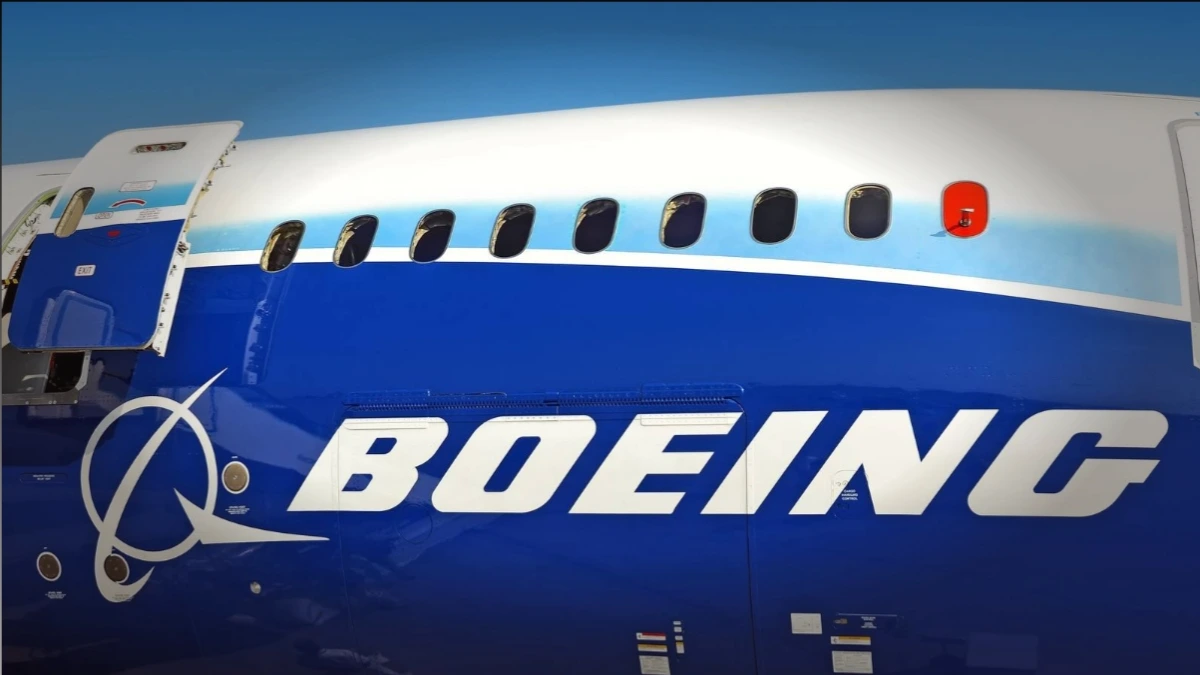Boeing Co. is poised to secure conditional approval from the European Union for its $4.7 billion acquisition of Spirit AeroSystems, according to people familiar with the matter.
The deal, which aims to strengthen Boeing’s control over its supply chain and improve quality oversight, is expected to be cleared with commitments to sell certain Spirit operations to address competition concerns raised by EU regulators.
The European Commission, the bloc’s competition authority, is scheduled to issue its final decision by October 14. The move follows months of scrutiny over potential impacts on the aerospace supply market and competition with European rival Airbus.
Boeing announced plans in July 2024 to reacquire Spirit AeroSystems, a key supplier it spun off nearly two decades ago. The decision marks a strategic shift as Boeing works to stabilize operations after a series of manufacturing and safety crises.
Spirit, based in Wichita, Kansas, manufactures critical aircraft components including fuselages and wings for Boeing and Airbus.
Over the years, Spirit expanded into work for Airbus and other aerospace firms, but analysts say it has struggled with profitability and operational challenges.
In response to EU competition concerns, Boeing and Spirit have proposed a package of remedies, including the sale of Spirit’s Europe focused loss making businesses to Airbus, along with the divestment of operations in Prestwick, Scotland, and Subang, Malaysia.
Facilities in Belfast that do not support Airbus programs are also slated for sale. Britain’s Competition and Markets Authority approved the deal unconditionally in August, signaling a smoother path in the UK.
Industry analysts say the acquisition underscores Boeing’s efforts to regain control over its manufacturing network amid growing pressure from regulators, airlines, and investors.
“Bringing Spirit back under Boeing’s wing is a logical step to streamline operations and improve oversight,” said Charles Wentworth, an aerospace analyst at Global Aviation Insights.
However, regulators are rightly cautious about ensuring the deal doesn’t distort competition, especially given Airbus’s reliance on some Spirit components.
Competition law expert Dr. Elena Müller of the University of Munich said the European Commission’s conditional approval reflects a balance between industrial strategy and market fairness.
“The EU wants to avoid excessive dependency in the supply chain while maintaining healthy competition,” she said.
The $4.7 billion deal, one of Boeing’s largest in recent years, follows a pattern of consolidation across the global aerospace industry as companies seek resilience in the wake of pandemic era disruptions.
Spirit AeroSystems reported revenue of $5.5 billion in 2023, with roughly one third tied to Airbus contracts. Analysts estimate that divestments required by the EU could amount to 10% to 15% of Spirit’s total operations.
For comparison, Airbus has maintained a diversified supplier base across Europe and Asia, which industry observers say may cushion it from potential disruptions linked to Boeing’s acquisition.
In Wichita, where Spirit AeroSystems employs more than 12,000 workers, employees expressed cautious optimism about the pending merger.
“It’s been a tough few years with all the uncertainty,” said Maria Gonzalez, a senior assembly technician with 15 years at Spirit. “If Boeing’s return means more stability and investment, that’s good news for us.”
Union representatives, however, urged transparency over potential restructuring. “We want to ensure any changes protect jobs and maintain fair labor standards,” said James O’Connor, a spokesperson for the International Association of Machinists and Aerospace Workers.
In Prestwick, local business leaders said the potential sale of Spirit’s Scottish operations could bring both risks and opportunities.
“New ownership might open new contracts and collaborations,” said Fiona MacLeod, head of the Ayrshire Chamber of Commerce, “but workers will be watching closely to see how transitions are managed.”
The European Commission’s decision, expected by mid October, will determine the final contours of the deal. If approved, Boeing is likely to move swiftly to integrate Spirit’s US operations and complete the planned divestments to Airbus and other buyers.
Analysts believe the acquisition could mark a turning point for Boeing as it seeks to rebuild its reputation and address production quality concerns following a string of high profile incidents.
Still, challenges remain. “This is just one piece of a much larger puzzle,” said Wentworth. “Boeing must also restore confidence with regulators and airlines while managing a complex global supply chain.”
Boeing’s anticipated conditional approval from the EU marks a critical milestone in its bid to regain control over a key supplier and stabilize its industrial base.
With divestments designed to address competition concerns, the deal could pave the way for a more integrated manufacturing strategy though its success will hinge on execution and regulatory compliance.
The European Commission’s final ruling on October 14 will set the stage for the next chapter in Boeing’s corporate turnaround and the evolving dynamics of the global aerospace sector.
